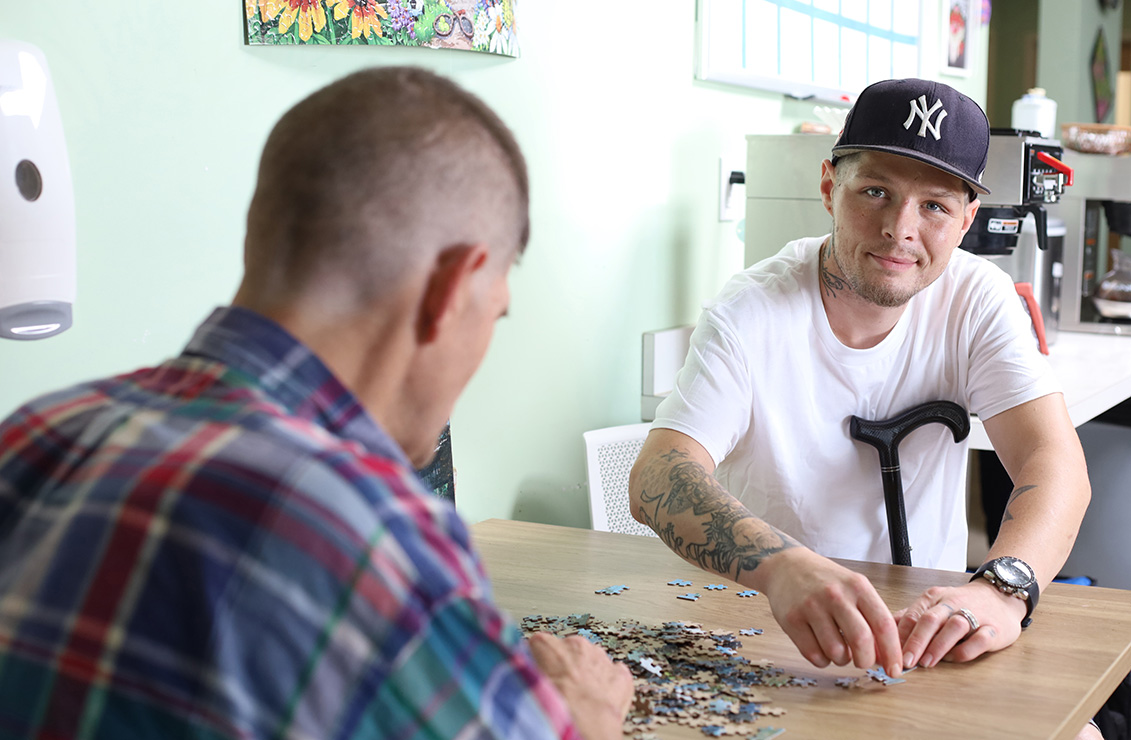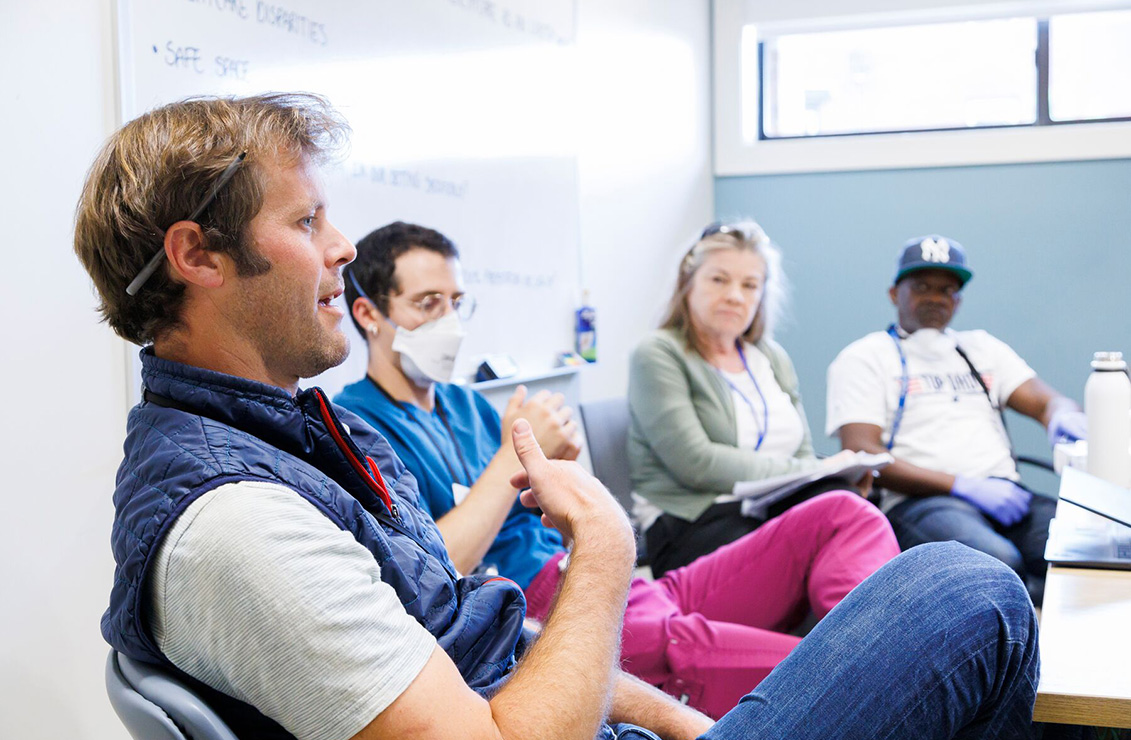Recuperative Care for Unhoused Patients

Patient Jesse Coffin puts a puzzle together with another resident.
Brad arrived at the Maine Medical Center (MMC) emergency department (ED) in December 2022, nine of his toes had been so severely affected by frostbite they required amputation.
As someone who has struggled with homelessness and substance use disorder for years, Brad was facing a significant recovery period with no home to return to; but a new program offered Brad help and stability at that critical time.
Brad, age 33, received follow-up treatment at the new recuperative care program run by the Federally Qualified Health Center Greater Portland Health in partnership with MMC and Preble Street. The health center, located at 934 Congress Street in Portland, is a short-term communal medical space that allows unhoused clients an opportunity to rest and heal in a safe, supportive environment, rather than alone on the streets or in a shelter, where recovery can be difficult.
Space and Time for Healing

A care team member leads a discussion with residents.
MMC and its community partners first had a vision for the recuperative care program, which opened in September 2022, more than 10 years ago as a way to improve health outcomes for unhoused patients. People who have unstable housing or experience homelessness after hospitalization have 30 percent more visits to the ED after discharge than people with stable housing. The Congress Street facility has 15 beds with a common living room and shared bathrooms. It is staffed 24 hours per day, seven days per week.
In addition to providing recuperative care, the center connects patients with community resources to further aid their recovery and help add stability to their lives after leaving the facility.
Making a Difference
Early results indicate that the program is providing real benefits. In its first six months, the recuperative care program supported 44 patients, including Brad. The average length of stay at the center was 21 days, and MMC estimates that the program released the equivalent of 950 hospital beds for other patients who needed overnight hospital-level care.
During several stays at the program, Brad received daily wound care and IV antibiotics, while care team members helped him apply for federal and state benefit programs. Now, he is getting ready to transition into long-term stable housing at one of Preble Street’s housing first programs.
“It’s a good place to go to be taken care of and transition to a new apartment,” Brad said. “It feels very home-like. I am listened to. I feel more like a person here and less like a patient.”
Maine’s First Recuperative Care Program
What if you had a serious illness but no place to rest or recover? Learn more about recuperative care.

